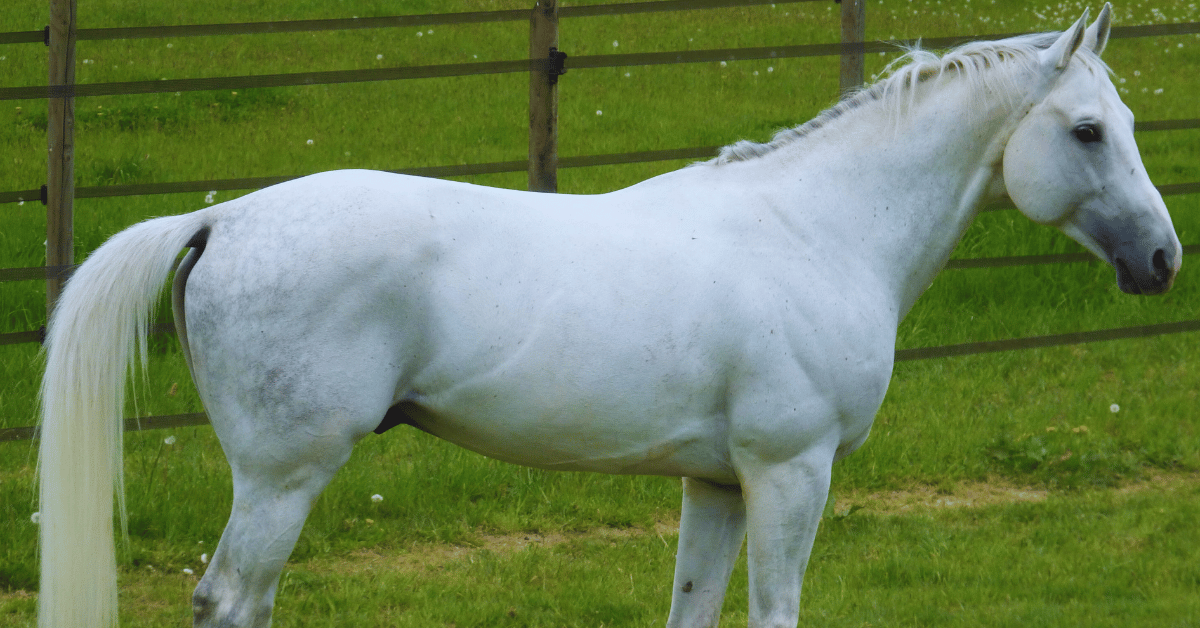The Anglo-Arabian represents a remarkable fusion of two distinguished equine bloodlines, combining the refinement and endurance of the Arabian with the athletic prowess of the Thoroughbred. This versatile breed has earned its place among the most prestigious sport horses in the world.
Quick Facts
| Characteristic | Details |
|---|---|
| Height Range | 15.2-16.3 hands (157-170 cm) |
| Weight Range | 450-550 kg (990-1,210 lbs) |
| Color Variations | Chestnut, bay, gray |
| Temperament | Intelligent, energetic, playful, tough |
| Primary Uses | Sport, eventing, racing, riding |
| Origin | France |
| Conservation Status | Stable |
Historical Development
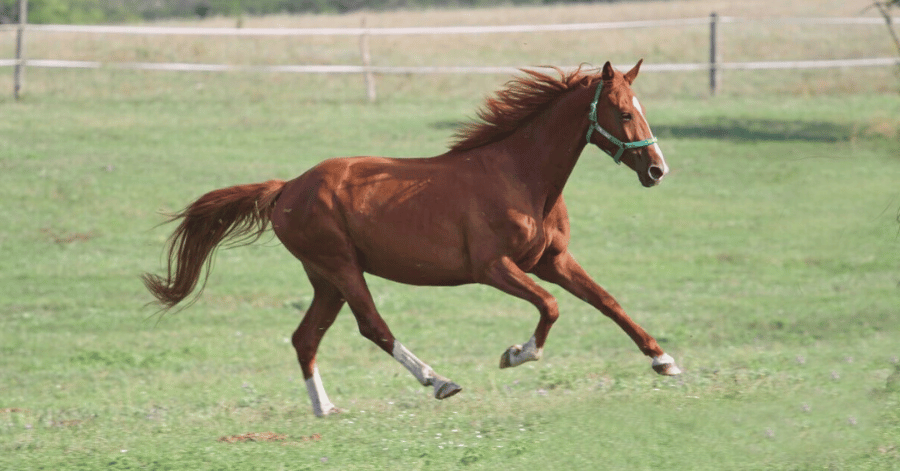
The systematic breeding of Anglo-Arabians began in France in 1836 at the prestigious Pompadour stud farm[1]. The breed’s foundation was established with two Arabian stallions, Massoud and Aslan, crossed with three Thoroughbred mares: Dair, Common Mare, and Selim Mare. This careful breeding program was initiated under the direction of M. de Bonneval and later refined by Eugène Gayot.
The initial breeding objective was to create an ideal cavalry mount that would combine the Arabian’s bravery and endurance with the Thoroughbred’s power and speed. After World War I, the breeding focus shifted toward producing versatile sport horses excelling in various disciplines.
Physical Characteristics
The Anglo-Arabian exhibits a distinctive blend of its parent breeds’ characteristics:
Head and Neck
- More Thoroughbred-like head with a straight profile
- Mobile ears and expressive eyes
- Long, well-set neck with prominent withers
Body Structure
- Short, strong back
- Deep chest
- Oblique and powerful shoulders
- Long, horizontal quarters
- Solid frame that’s more substantial than the Thoroughbred
Limbs and Movement
- Sound, uniform limbs
- Dense, high-quality bone structure
- Correct, straight movement with energetic gaits
- Elastic and powerful canter
The breed’s height typically ranges between 16 and 16.3 hands, making it an ideal size for various sporting disciplines . While not as fast as pure Thoroughbreds, Anglo-Arabians are renowned for their agility, athleticism, and precise movement.
Temperament & Personality
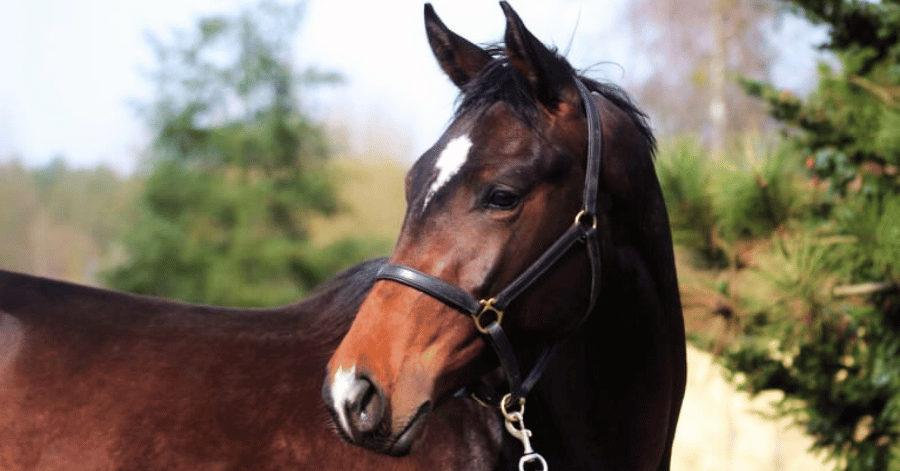
The Anglo-Arabian exhibits a complex and nuanced temperament that reflects its dual heritage. These horses are known for their good-natured and trusting behavior, combined with a sociable and balanced disposition[1]. While they can be sensitive and spirited, they demonstrate strong nerves and remarkable adaptability to environmental stimuli.
Key Personality Traits
- Even-tempered and kind
- Highly intelligent and responsive
- Playful and energetic
- Strong nervous system and robust constitution
One notable characteristic is their preference for forming strong bonds with a single rider, as they don’t typically tolerate frequent changes in handlers well.
Performance & Uses
| Discipline | Suitability Rating | Notes |
|---|---|---|
| Endurance | ★★★★★ | Exceptional stamina and speed |
| Show Jumping | ★★★★☆ | Excellent jumping ability |
| Dressage | ★★★★☆ | Powerful, tactful movements |
| Eventing | ★★★★★ | Versatile athletic ability |
| Racing | ★★★★☆ | Strong racing heritage |
| Trail Riding | ★★★☆☆ | Suitable for experienced riders |
The Anglo-Arabian has evolved from its origins as a cavalry mount to become a remarkable competition horse[1]. Their powerful and tactful movements in trot and canter, combined with high rideability, make them particularly successful in various disciplines. They excel especially in endurance events and competitive sports, demonstrating their versatility as high-performance athletes.
Health & Management
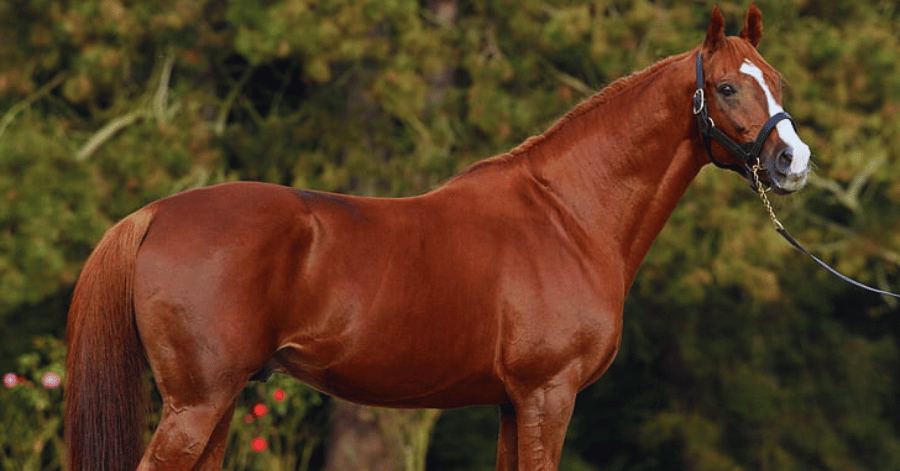
These horses require thoughtful management to maintain optimal health and performance. Key aspects include:
Exercise Requirements
- Regular exercise programs are essential
- Daily turnout for mental and physical stimulation
- Structured training to channel their energy positively
Feeding Considerations
- Generally considered easy keepers
- Require careful monitoring to prevent weight gain
- Diet should be adjusted based on work level
Health Monitoring
Two specific genetic conditions require attention:
- Cerebellar abiotrophy (CA): A neurological condition affecting balance
- Severe combined immunodeficiency (SCID): An immune system disorder primarily affecting foals
Modern Role & Demographics
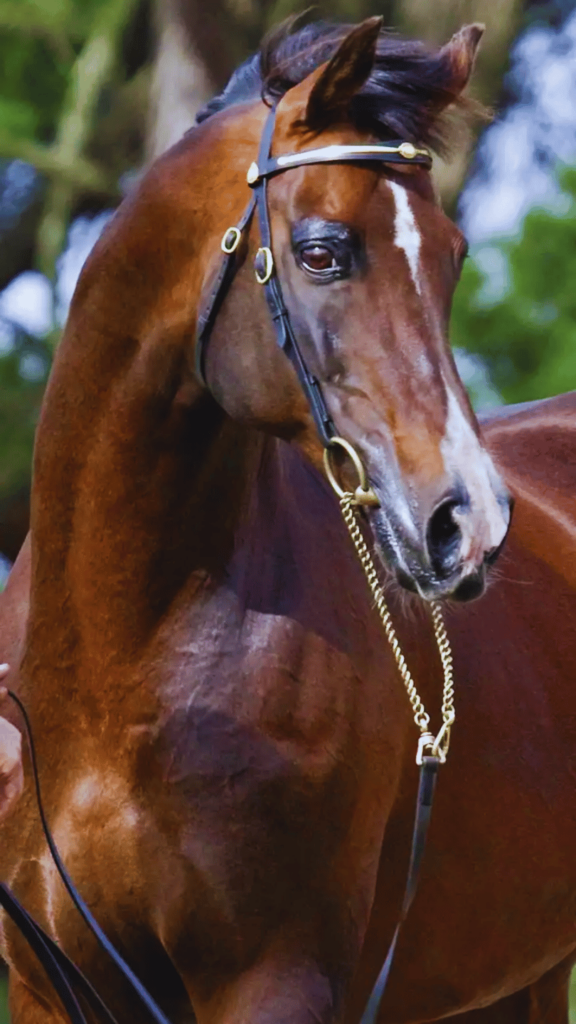
The Anglo-Arabian continues to maintain a strong presence in equestrian sports, particularly in Europe where the breed originated. Their registration requirements are strictly monitored to maintain breed standards, requiring horses to have between 25% and 75% Arabian blood.
Registration & Breeding Programs
Modern breeding programs focus on producing versatile sport horses while preserving the breed’s distinctive characteristics. The Arabian Horse Association (AHA) manages registrations in North America, accepting offspring from both purebred Arabian-Thoroughbred crosses and Anglo-Arabian parents.
Population Distribution
| Region | Status | Trend |
|---|---|---|
| France | Strong presence | Stable |
| Poland | Active breeding | Growing |
| England | Established programs | Stable |
| North America | Increasing popularity | Rising |
Buying Guide & Ownership Costs
Purchase Considerations
When buying an Anglo-Arabian, prices can vary significantly based on:
- Age and training level
- Bloodlines and pedigree
- Competition experience
- Geographic location
Annual Care Costs
| Expense Category | Annual Estimate |
|---|---|
| Board | $1,200-7,200 |
| Feed | $250-4,380 |
| Veterinary Care | $200-350 |
| Hoof Care | $120-1,000 |
| Registration Fees | $130-200 |
These costs can vary significantly depending on location and specific care requirements. First-time buyers should note that Anglo-Arabians require empathetic training and prefer consistent handlers.
Care & Nutrition Requirements
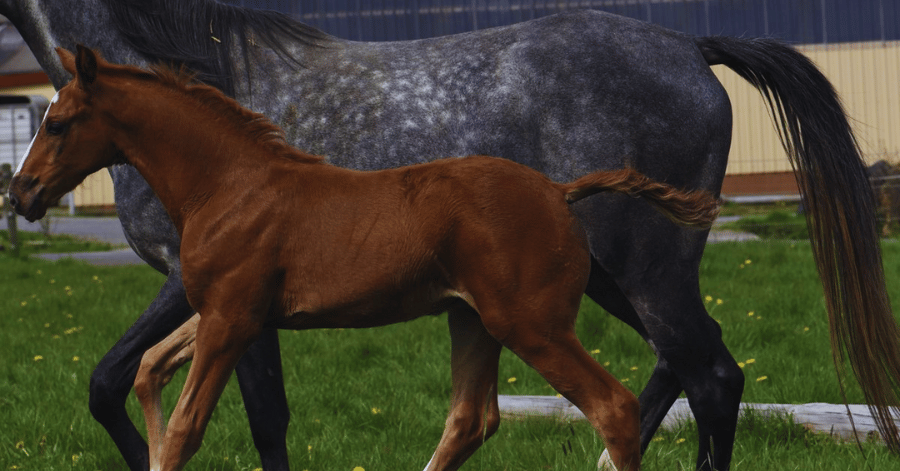
Anglo-Arabians require careful nutritional management to maintain optimal health and performance. Their dietary needs reflect their dual heritage and athletic capabilities.
Basic Diet Components
A mature 450 kg (1000 lb) Anglo-Arabian at maintenance requires:
- Free-choice mid-quality hay (approximately 9 kg/20 lb daily)
- 30g (2 tablespoons) of plain loose salt
- Comprehensive vitamin and mineral supplementation
Feeding Guidelines
- Forage should form the foundation of the diet
- Multiple small meals throughout the day are recommended
- High-starch grains should be limited to prevent digestive issues
- Consider fiber sources like soaked alfalfa pellets or beet pulp for added calories[1]
Exercise & Management
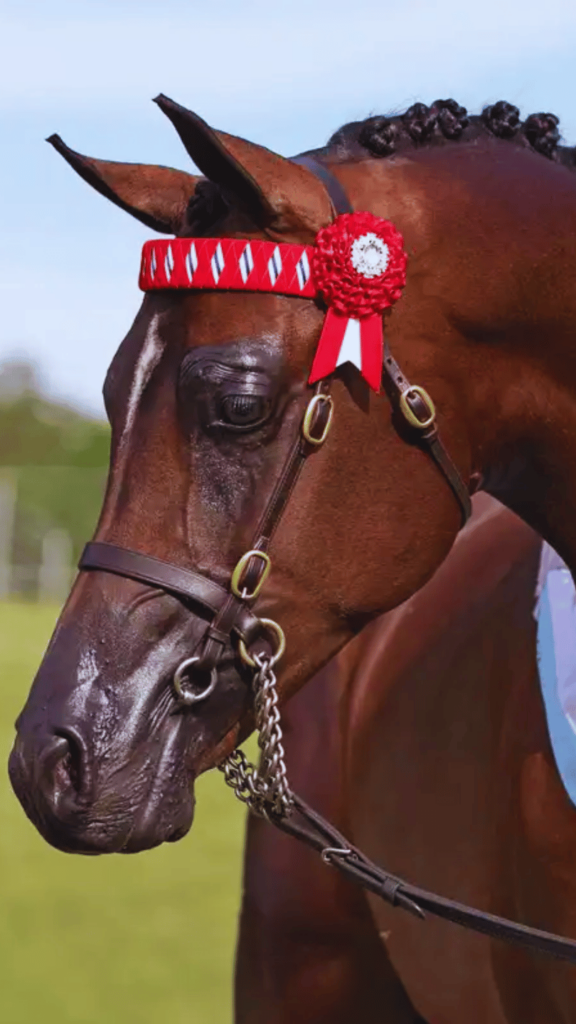
Anglo-Arabians are athletic horses that require regular exercise and proper management to thrive:
Exercise Requirements
- Daily turnout for mental and physical stimulation
- Structured training programs
- Regular exercise to channel their energy positively
Health Monitoring
Special attention should be paid to:
- Twice-yearly dental examinations
- Regular hoof care
- Monitoring for metabolic issues
- Prevention of gastrointestinal problems
Key Breed Highlights
- Exceptional versatility in multiple disciplines
- Strong athletic ability with natural balance
- Intelligent and trainable disposition
- Rich heritage and careful breeding selection
Cost of Ownership
Annual expenses for maintaining an Anglo-Arabian include:
| Expense Category | Annual Cost Range |
|---|---|
| Feed | $250-4,380 |
| Veterinary Care | $200-350 |
| Hoof Care | $120-1,000 |
| Board | $1,200-7,200 |
| Registration | $130-200 |
These costs can vary significantly based on location, specific care requirements, and the level of activity the horse maintains.
Resources & Associations
Several organizations worldwide maintain breed registries and support Anglo-Arabian owners:
Major Registries
- French Anglo-Arab Society
- Anglo-Arabian Horse Society (UK)
- Arabian Horse Association (USA)
- World Arabian Horse Organization
Notable Breeding Centers
- National Stud at Le Pin (France)
- Pompadour National Stud (France)
- Tersk Stud (Russia)
The future outlook for the Anglo-Arabian remains positive, with continued demand in competitive sports and increasing recognition in emerging equestrian markets. Their adaptability to modern equestrian disciplines ensures their relevance in today’s horse industry, while careful breeding programs maintain their distinctive characteristics and high performance standards.
Conclusion
The Anglo-Arabian horse stands as a masterpiece of equine breeding, seamlessly merging the grace and refinement of the Arabian with the strength and athleticism of the Thoroughbred. This exceptional blend creates a horse renowned for its beauty, intelligence, and versatility. With its striking appearance—high-set neck, expressive eyes, and a balanced, powerful build—the Anglo-Arabian is as captivating in the show ring as it is dependable on the trail.
Praised for its spirited yet gentle temperament, this breed excels in a variety of disciplines, from endurance riding and eventing to dressage and show jumping. It’s a horse that thrives on connection and trust, making it a favorite among both competitive riders and devoted equestrian enthusiasts. The Anglo-Arabian horse is not just a breed—it’s a testament to the art of combining elegance with utility, creating a partner that embodies beauty and boundless potential.
Citations:
[1] https://www.artbycrane.com/horse_breeds/light_horse_breeds/anglo_arab.html
[2] https://www.royal-horse.com/race/the-anglo-arabian-horse/
[3] https://www.ehorses.com/magazine/horse-breed/anglo-arab/
[4] https://www.horsebreedspictures.com/anglo-arabian.asp
[5] https://www.britannica.com/animal/Anglo-Arab
[6] https://madbarn.com/anglo-arabian-horse-breed-profile/
